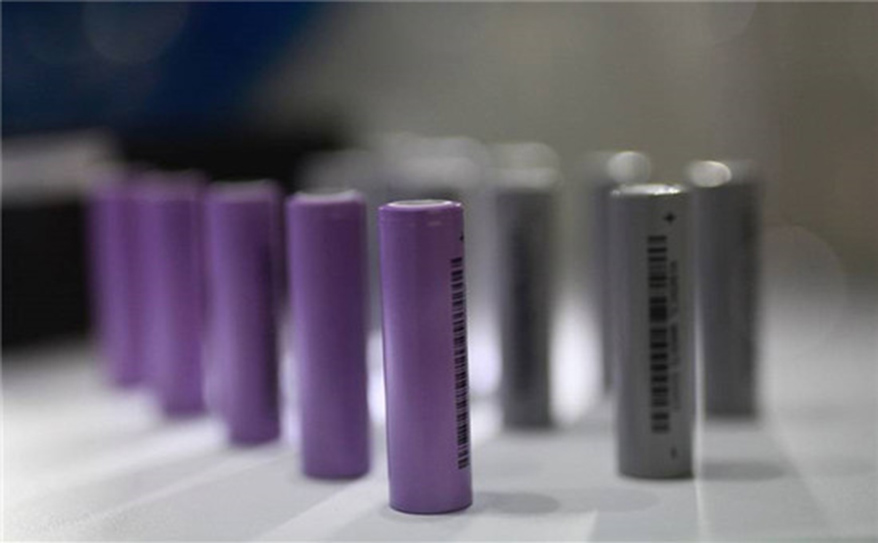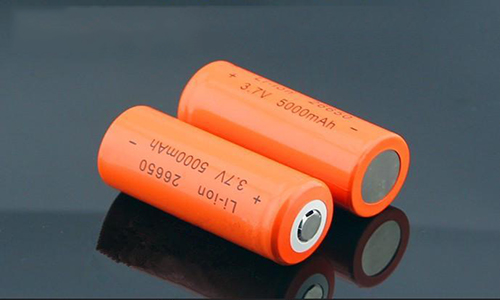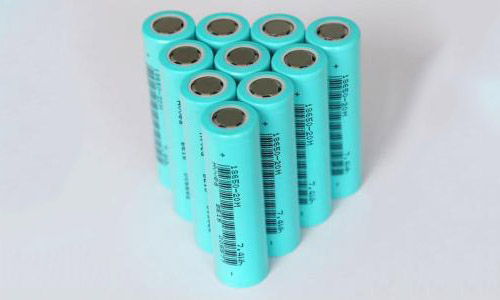How to Prolong Life of Lithium Ion Battery?
May 15, 2019 Pageview:1191
In today’s modern world where mobile devices are widely used, battery life has become so precious. There are many different types of batteries available in the market these days, and one of these is the lithium-ion battery.
Lithium-ion batteries are types of batteries typically used for electric vehicles and portable electronics which are now growing in popularity in various applications. Since Lithium ion batteries are often used, prolonging the life of these batteries has become a significant concern.
But before you get fully occupied by thinking about ways on how to prolong their life, you first need to learn some essential aspects. Read on as these relevant details are briefly discussed below.

Battery Shelf Life Definition
In general, shelf life is defined as the suggested maximum time for which a product can store and sustain during the defined quality and duration under expected or specified conditions of display, storage and distribution.
Battery shelf life is defined as the length of time batteries can remain in storage without actually losing their capacity. Even if batteries are not in use, these tend to age. Aging of batteries is commonly affected by certain factors like storage temperature, chemicals that are present on the battery cells and length time that the batteries remain idle.
During the storage, batteries will self-discharge, and contents will be vulnerable to decomposition. High temperatures make batteries self-charge faster while on the other hand, cooler temperatures decrease their self-charge rate. Electrolytes are chemicals present in batteries that contain high ion concentrations that might permeate through seals. This causes the battery to end up dry and be unusable.
New Phone Battery First Charge
When it comes to having a new phone, frequently asked questions include how to charge a new phone battery for the first time. How long should you charge new phone before its first use? In most instances, you need to fully charge your battery before you use it for the first time. Most of the time, you will be fine with your phone turned on while charging it for the first time provided that the battery gets fully charged before unplugging it. Charging batteries the right way is a means that help prolongs the life of your battery.
If you have lithium-ion batteries, what can you do to prolong its life?

Ways of Prolonging the Life of your lithium ion batteries
During the earlier years, batteries are mainly used for commercial purposes only like signaling, telecommunications, lighting and more. Nowadays, batteries turn out to be travel companions, a driving force to make mobile devices work and also power computer units allowing individuals to work anytime, anywhere. But most importantly, batteries help individuals especially when they are in need of recharging for emergencies.
Many individuals are therefore eager to learn ways on how to prolong the life of their batteries. For lithium batteries, the following ways can help you accomplish this goal.
Lithium-ion batteries takes the lead in the nickel-cadmium batteries, and this is thanks to its lower than the half rate of nickel batteries. Also, there’s a bit to no harm when battery cells are fully exposed.
Though lithium-based batteries got numerous advantages, these also have their drawbacks and limits. It is for this reason that taking the time to understand how to care and prolong the life of lithium ion batteries exactly is crucial.
Hot Temperatures
Just like most types of batteries, lithium ion batteries should be stored at cooler temperatures. Keep in mind that if the temperature is higher, the self-discharge rate is also higher.
Try to store your battery at about 68 °F temperature. Since charging as well as using batteries tends to create heat, you need to give your batteries enough time to somehow cool down between use and charging time. This is a highly effective way of prolonging the life of your lithium ion battery.
Cold Temperatures
If heat can shorten battery life, so can the cold temperature. By allowing them to warm up a little near the heater during a cold day or in the sun, you are giving your batteries some power boost and keep your batteries running so you do not have to recharge more often and switch batteries.
To ensure safety regardless of the temperature outside, keep your battery inside. The indoor temperature tends to stay steady all through the year, and there’s usually minimal humidity too.
Moisture
Water and temperature are things that shouldn’t be mixed. In case they do, you need to look out. These are expected to form hydrogen and lithium hydroxide which is ultimately flammable. In case your lithium batteries catch a fire for some reason, do not pour water into it for this will make the situation worse. Make sure there is a Class-D fire extinguisher available.
Your best bet to ensure safety is keeping lithium batteries away from the source of water. Though the batteries’ casing was designed to get rid of moisture and draw it away from battery cells, nothing is accident proof.
Managing the Discharge
Recharge batteries before these get completely dead. Avoiding your batteries from being drained completely will surely extend their life. In case you’re preparing your batteries for a particular period, ensure that you do these at half-charge. Unlike the other battery types that should be recharged throughout the storage time, the lithium-ion batteries at about 40% to 50% Depth of Discharge or DOD.
Pro-tip-After every 30 battery charges, allow your battery to discharge completely before recharging. This helps in avoiding a condition known as digital memory. This can mess with the device’s power gauge accuracy that you are using. Using allow your battery to discharge entirely, you are allowing your power gauge to reset.
The Voltage
Numerous batteries come to an early end for the reason that they’re charged utilizing wrong voltage. One of the most significant advantages of using lithium-ion batteries is that these provide rapid recharging, so there is no need to mess with processes. You will only cause damages which cannot be undone. Generally, for 12V lithium-ion batteries, the ideal charging voltage to guarantee maximum lifespan is around 14.6 V.
Although not all batteries are created equal, all these need to be adequately taken care of to make sure that they comply with their ultimate or maximum potential. This means that understanding requirements for special care for the different types of is important. Managing storage temperature, keeping them dry and making sure that you’re charging properly you will always have batteries that you can rely on when you need them.
Safety Requirements for Handling and Storing Lithium Batteries
Lithium batteries often utilized in numerous devices such as cell phones, watches, cordless tools, flashlights, computers, medical devices and even on electric cars. All types of batteries are proven useful since these allow individuals to store energy for reliable use when needed.
Nevertheless, storing energy is unsafe, and batteries might overheat during the process called thermal runaway. It means that pressure and temperature inside the battery cells increase faster than what heat can be dissipated. This happens for a variety of reasons like internal shorts, external heat sources and other malfunctions. The fire that involves lithium batteries is hard to extinguish and also produce toxic and irritating fumes.

Recommended Safe Storage and Handling of Lithium Batteries
When working with lithium batteries in a word related setting, individuals might oversee huge quantities of batteries. It's critical to wear defensive and protected equipment, such as eye protection. Avoiding shorts by shielding battery terminals from reaching each other is fundamental and safe storage and handling practice.
The battery terminals ought to stay secure, as much as possible. Care ought to dependably be taken when handling the batteries. Utilizing exorbitant power to expel batteries from a gadget can cause harm and possible damages so be cautious. Batteries should just be charged based on the producer's guidelines. Any dented, swollen or generally damaged batteries ought to be discarded.
Batteries must be kept in the well-ventilated, dry zone, and must be stored somewhere in the range of 40 and 80 degrees Fahrenheit. Batteries should be put away far from direct heat sources such as sunlight and water sources as well. Batteries must be stacked so they will not be bumped and they remain stable. Don’t stack heavy things over batteries or gadgets containing batteries. Lithium metal batteries must be separated from other batteries, and generally, all batteries must be isolated from explosive or flammable materials.
We are experts in customizing lithium-ion battery pack, and we always adhere to the policy of "maximum reliability and maximum safety". If you are looking for safe and quality lithium batteries, we are the company you can trust. Here at Dongguan Large Electronics Co., we guarantee to provide the finest selections of lithium-ion batteries to choose from on your search. With our 17 years in the field, you can be confident that choosing us does not just guarantee you with excellent products but the most reliable custom power solutions as well.
- Prev Article: Can You Solder Lithium Battery?
- Next Article: What are lithium batteries made of?
Leave Message
Hottest Categories
-
Hottest Industry News
-
Latest Industry News













